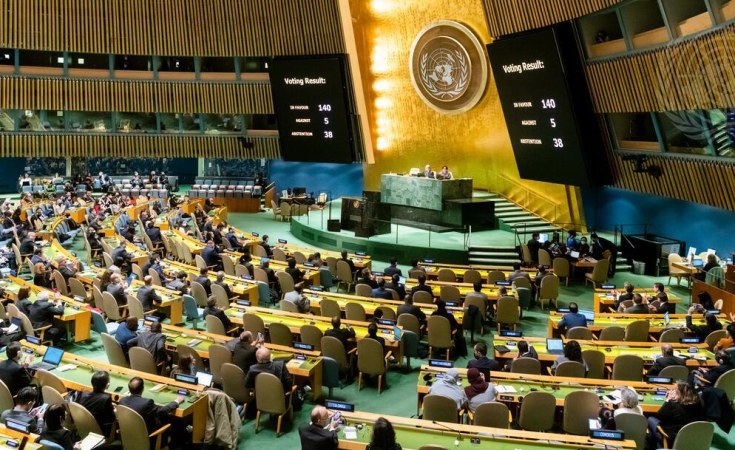Johannesburg — This week at U.N. meetings in New York, the United States said that two African countries should have permanent seats on one of the world's major decision-making bodies, the United Nations Security Council.
For years, numerous African leaders have called for the continent to have representation on the U.N. Security Council, which since World War II has had just five permanent members: the U.S., France, the UK, Russia and China.
This week, the top representative of one of those permanent seats, U.S. President Joe Biden, threw his weight behind the idea. However, there was one major caveat, which Kenyan analyst Cliff Mboya said is not going over well on the continent. The new African members would not have veto power on decisions.
"We've already seeing a lot of backlash... like this is a big joke, the question is what is the point in joining the Security Council if you don't have veto powers, what are you going to do there?" asked Mboya.
That could play in China's favor, as it has long positioned itself as a fellow developing country and leader of what's become known as the Global South, while disparaging the West for its colonial past, said Mboya, a postdoctoral fellow at the Center for Africa-China Studies at the University of Johannesburg.
"So I don't think this helps the U.S. and the West in terms of perception and narratives, and it will only embolden African countries to lean more to the East because it just speaks to the hypocrisy," he said. "China's been able to, you know, build this coalition of emerging and developing countries against the U.S. and Western-led world order."
But Paul Nantulya, a research associate with the Africa Center for Strategic Studies, said he thought the announcement was a "win" for U.S. diplomacy and would mostly be welcomed by African nations as it opens the door to further negotiations.
"Regarding China, China has been very, you know, kind of like sitting on the fence. So rhetorically China has said all the right things, supporting Africa's, what it calls Africa's legitimate interests in the United Nations, including the United Nations Security Council," he said.
But its plan for that has been hazy, he added.
"When it comes to specific details, in terms of whether China supports permanent African representation on the council with veto power, when it comes to that China has not articulated a position."
Among those in New York this week calling for U.N. reform was South African President Cyril Ramaphosa. He said, quote: "Africa and its 1.4 billion people remain excluded from its key decision-making structures."
U.N. Secretary-General Antonio Guterres has also called for reform, saying the UNSC hasn't kept up with a changing world and Africa is underrepresented.
Some African countries want veto power in the Security Council dispensed with entirely.
If there is reform, and Africa gets the two seats on the Security Council that the U.S. proposes, key contenders could include the continent's largest economy, South Africa; most populous country, Nigeria; or North African heavyweight Egypt, Nantulya told VOA.
However, analysts say any future process of adding African countries as permanent members is likely to face hurdles, as there will be problems reaching consensus. Nantulya said some African politicians think it could even drive a wedge between countries on the continent.
There are also concerns the U.S. statement could just be rhetoric -- and so far no timeline has been given regarding the next steps. Under U.N. rules, any change to Security Council membership would need approval from two-thirds of the General Assembly, including all five permanent members.


